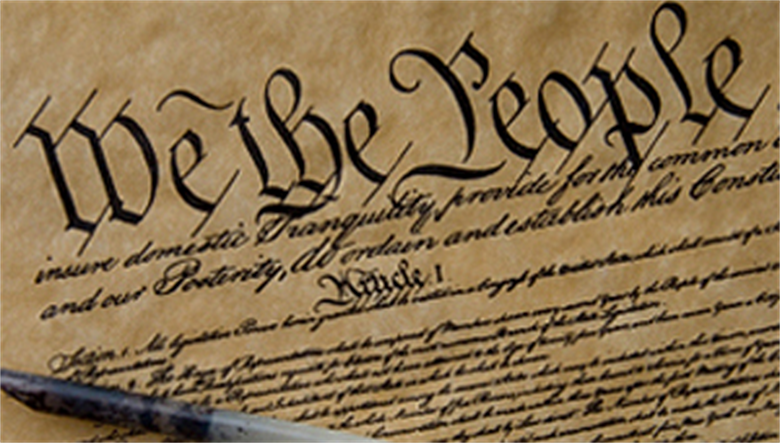At 1:00 a.m. on May 1, 2011, twenty-three members of Navy Seal Team Six descended from two MH-60 Black Hawk helicopters into a compound in Abbottabad, Pakistan. Their objective was to kill Osama bin Laden. Prior to beginning the mission, the team assembled a list of Native American words to signify each stage of the mission. “Geronimo” meant that bin Laden had been found. When a Seal located and killed bin Laden with two gunshots, he immediately radioed, “For God and country. Geronimo. Geronimo. Geronimo.”
The radio message made a profound theological connection: Osama bin Laden was an enemy of the United States and therefore an enemy of God. The short report thus cast the military mission in terms of something much higher. Executing bin Laden was an act executed, first of all, “for God.”
The fusion of Christian and national identities stands at the heart of Christian Nationalism, a complex of beliefs that holds that the United States was established by divine providence as a Christian nation, that God has a unique destiny for the nation, and that the nation must uphold and practice Christian principles. A recent article in the journal Sociology of Religion reports that adherence to a Christian Nationalist ideology was a key factor in the overwhelming support that Donald Trump received from white evangelicals in the 2016 presidential election. It is a peculiar but potent belief system with a long history.
Nationalism as a social movement has its origins in 18th century Europe, when the maps of medieval Europe were being redrawn to unify disparate ethnic groups into larger political entities. Over the next few centuries, social elites facilitated processes by which, for example, Provençals, Bretons, and Burgundians were transformed into Frenchmen and Saxons, Swabians, and Bavarians acquired a common German identity. The unifying process required a transcendent vision that had sufficient power to persuade people groups to see themselves as part of something bigger. The symbols and beliefs of the Christian religion provided that sense of transcendence and were taken up and appropriated to give the “nation” a sense of sacredness. It is for this reason that Anthony D. Smith, one of the leading scholars in the field, has defined nationalism as “the new religion of the people,” in which the nation itself become the object of veneration.
The so-called Founding Fathers faced the task of transforming 13 bickering, former colonies into a United States of America. To do so, they also redirected religious symbols and motifs toward unifying ends, in their case by drawing on Puritan beliefs that had permeated religious thinking throughout the colonies. The leap from the Puritans as the New Israel to the United States as the New Israel was not difficult to make. Love of God was transformed into love of country. The Puritan mandate to evangelize the nations became a national mandate to spread liberty to the whole world. Puritan motifs of election and predestination imbued the nascent United States with a sense of divine election and divine destiny.
By this process, the nation itself became an object of veneration, with practices that display all the marks of religious devotion. The United States has a national scripture, the Constitution, which is the object of meticulous interpretation. We, its citizens, sing national hymns – “America the Beautiful,” “God Bless America,” “My Country, ‘Tis of Thee” – which extol the nation and the virtues that we live by. We have a national creed, a Pledge of Allegiance, which we use to teach our young and which we recite at public gatherings. We have a national emblem, the Stars and Stripes, which appears prominently in our national rituals and which we treat with other practices meant to reinforce the sacredness of the flag and what it represents. We observe national holy/days, which we celebrate as sabbaths and commemorations. And we have public rituals, like sporting events, that begin with a sacred ceremony. (Why would a football player kneeling during the national anthem evoke such outrage? Because it felt like blasphemy!)
American nationalism, in short, is a religion in everything but name. It is a rival religious system that beckons us Americans toward an idolatrous worship of ourselves. Siren calls to make America great again are really calls to make us great again, which means that Christian Nationalism is a distinct but no less insidious form of idolatry. Not the kind of idolatry that forsakes God, but the syncretistic kind that blends worship of God with pagan practices that direct worship toward another pretend-deity. To be sure, love of country is laudable. But when allegiance to country trumps manifest devotion to God, we have turned aside to the worship of an idol.
We manifest our allegiance to the American idol when fighting for national greatness means more to us than embodying the love of Christ to a watching world. When we reject love of neighbor and fixate on building and maintaining walls. When we justify the exertion of force as a primary tool of statecraft. When we demonize those who do not tow the current national line or excuse those who do the demonizing. When we endorse policies that enrich national elites but crush the heads of the poor. When we participate in the hateful, divisive language of our time rather than acting like the peacemakers we are called to be.
If there is a path for renewal for the church in the United States, that path does not lie with recovering our role as chaplains of the American Empire, but rather in bearing witness to the God who stands above all worldly rulers and powers and who alone deserves uncompromising devotion.

